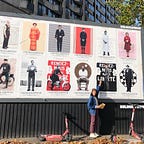Couch Activism
2020 is not here to play. Last night [4th August], an explosion went off in Beirut harbour, killing at least 100 people and wounding 4,000. Given that activism is now ‘trending’, there has been an outpouring of support on social media; I’ve seen videos of the blast reposted more times than I can count and learnt more about the political situation in Lebanon in the past 24 hours than I have in my entire lifetime.
Another tragedy, however, is all in a day’s work for fake Instagram accounts trying to gain likes and follows. At this point, I barely lifted an eyebrow when I saw a post circulating that said ‘REPOST TO DONATE TO LEBANON’, the caption promising that for every 100 shares, $1 would be donated to the cause. When I clicked onto the account, I saw that it had a grand total of two posts (the first one being a video of yesterday’s explosion) and over 18,000 followers already. The bio had nothing in it to indicate that the claim was legitimate — quite frankly, if anyone were to look at the account, they would likely realise it was a scam.
Being my constantly angry self, I immediately took to my story to ‘expose’ the account, begging my 600 or so followers to stop reposting and sharing anything and everything that they see and to actually take a moment to verify the legitimacy of a post before giving it more publicity. But after this, the issue was still annoying me.
These fake posts have been around ever since Plant-A-Tree initiatives were trending on Instagram last year. Part of me was astounded by the fact that people are so oblivious to what’s going on that they are still not aware of these scams by now. In addition to this, I had to question why they are always so successful in achieving their five minutes of fame.
In my opinion, it comes down to Couch Activism (or slacktivism, or clicktivism, whichever term you prefer). The Oxford dictionary definition is this: the actions performed via the Internet in support of a political or social cause but regarded as requiring little time or involvement (and having little impact, I’d like to add). Everything happens online these days (especially in a pandemic). And don’t get me wrong, some of the resources you can find on social media are great — I’m a huge fan of accounts such as @soyouwanttotalkabout that regularly post infographics explaining political theories, social issues and more in a clear, concise way. But essentially, if you want the world to know that you’re an activist, there’s no better place to do it than on your Instagram story. So when people see posts saying ‘share to donate!’, the response is: ‘brilliant! If I repost, not only will my followers know I’m an advocate for human rights, but I’ll also be contributing money towards a cause!’ See the problem? (The irony is that if everyone just took the initiative to go and donate a dollar, or pound, or whatever, themselves, the money would actually be raised and the element of performative activism would be wiped out.)
The issue, however, doesn’t end with scam accounts. I complained (this is becoming a trend now…) in my last post about the issue with people who share photos of people in danger but don’t actually promote ways to help. With the Beirut tragedy, this is becoming more and more prominent — people will share the video of the explosion because it’s shocking and will generate a response but provide nothing to do from there. A few weeks ago, my friend shared a TikTok outlining who you could email to push for Breonna Taylor’s murderers to be arrested, so I did some googling, found out what I needed to know about Kentucky’s Attorney General, sent him an email and shared his email address on my story so that others could do the same. I never want to assume the worst about people, but I know almost for certain that the number of people who did not send an email would have vastly outnumbered those who did. And only a few weeks ago, my feed was full of posts about how outrageous Breonna Taylor’s situation is (not to mention the memes).
What this comes down to is that people are quick to post photos and share sad stories, but when it comes to real life, nobody’s watching so what’s the point? I am truly excited to be a part of Gen Z, but if we don’t learn to take our activism offline and into our everyday lives we won’t be the difference the world needs to see.
Thanks for reading this far I love you!!!
This is the website for the Lebanese Red Cross (it’s recommended that you donate to them): https://www.supportlrc.app
BREONNA TAYLOR HAS AN OFFICIAL WHITE HOUSE PETITION: https://petitions.whitehouse.gov/petition/justice-breonna-taylor-5
You can email Attorney General Cameron too (the Breonna Taylor investigation is officially under his jurisdiction): attorney.general@ag.ky.gov
